The 24 best album of the year nominees that got robbed at the Grammys
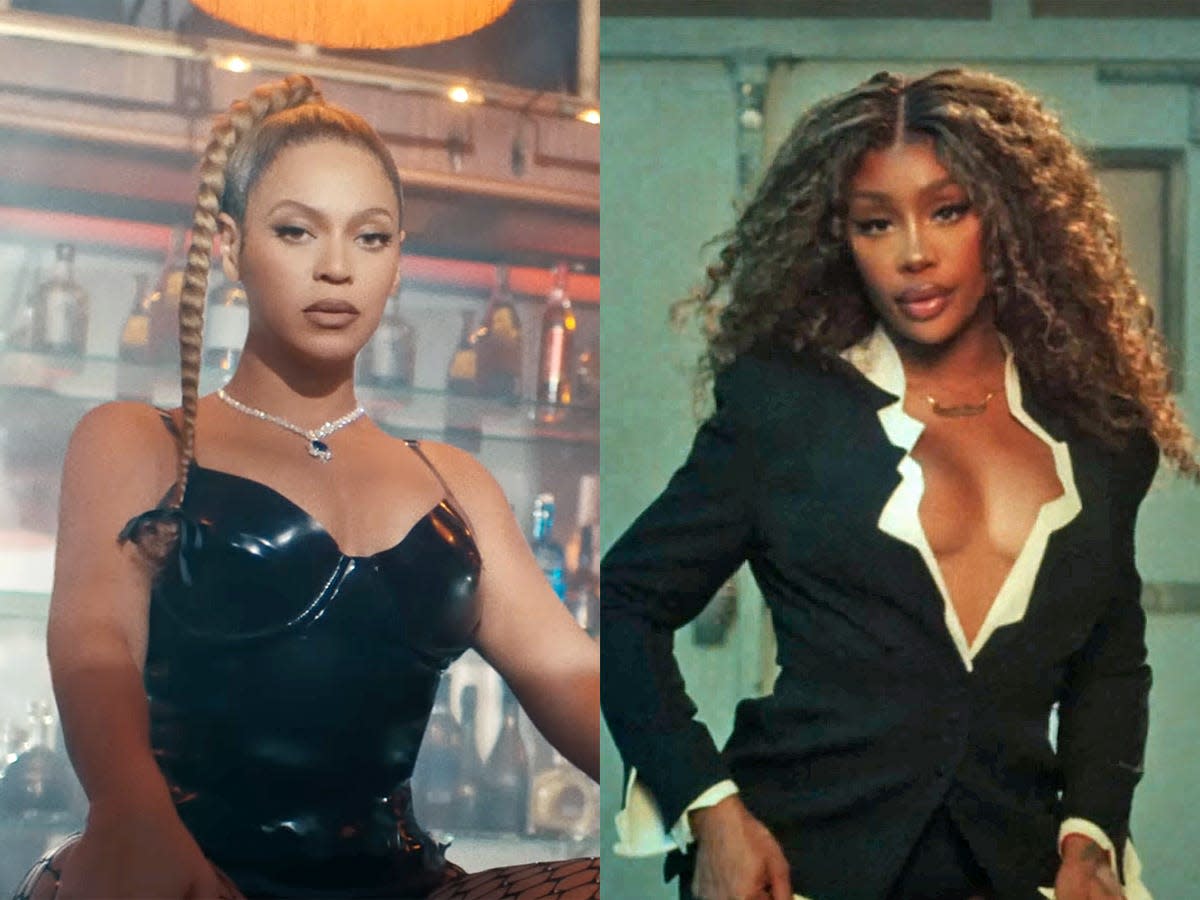
The most prestigious category at the Grammys is album of the year (AOTY).
But some of the best albums in history have lost the award to lesser nominees.
Recent examples include SZA's "SOS," Beyoncé's "Renaissance," and Olivia Rodrigo's "Sour."
SZA deserved to win the top prize for "SOS."

Year: 2024, at the 66th Grammy Awards
What beat it: "Midnights" by Taylor Swift
Even as a card-carrying Swiftie, I was disappointed to watch Taylor Swift win her fourth album of the year award for an album that doesn't measure up to her best work.
The radio-friendly pop music of "Midnights" pales in comparison to the brutal, sprawling genius that SZA displays on her sophomore album. Despite its late 2022 release date, "SOS" proved to be a peerless force, dominating the musical landscape of 2023 and confirming SZA as "a key voice in her generation" (per Rolling Stone). She received more Grammy nominations than anyone else in 2024, including song and record of the year for "Kill Bill."
Unfortunately, like many essential Black artists, SZA was shut out in major categories. Her wins were confined to genre-specific awards: best progressive R&B album, best R&B song for "Snooze," and best pop duo/group performance for "Ghost In The Machine."
There is no reason why Beyoncé's "Renaissance" should've lost album of the year.
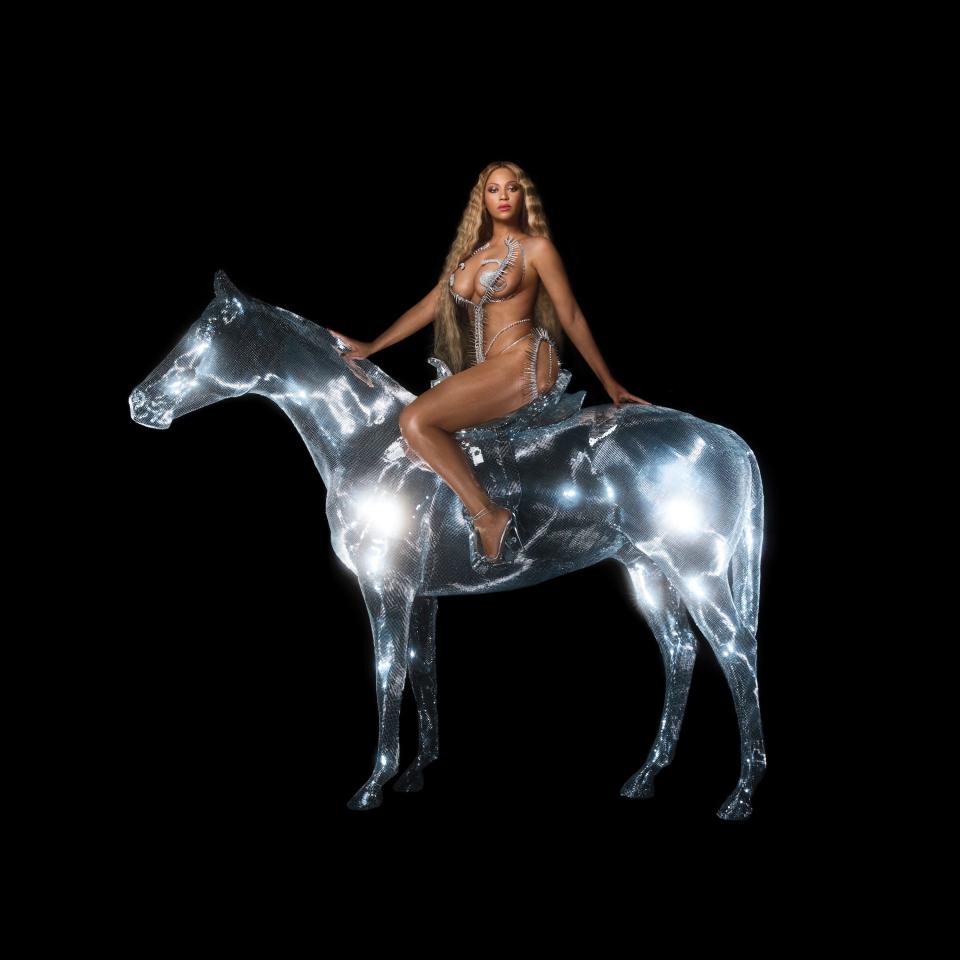
Year: 2023, at the 65th Grammy Awards
What beat it: "Harry's House" by Harry Styles
This is Beyoncé's third time being added to this list, and each time she fails to win album of the year, it gets a little more inexplicable and infuriating.
Her eighth album, the queer-pop masterpiece "Renaissance," was the obvious choice for album of the year in 2023.
To make matters worse, the Recording Academy spent a large chunk of the ceremony exalting Beyoncé for becoming the most-decorated person in Grammys history — and patting themselves on the back for allowing it to happen — just to end the night by handing the top award to Harry Styles. And to be clear, "Harry's House" is good, but it's no "Renaissance." It's not even close.
Once again, Beyoncé was triumphant in genre-specific categories — best dance/pop album, best dance/electronic recording for "Break My Soul," best traditional R&B performance for "Plastic Off the Sofa," best R&B song for "Cuff It" — but not in the prestigious general-field races.
In fact, out of her record-breaking 32 wins, only one has been in a general-field category: song of the year for "Single Ladies" in 2010. It's beginning to feel awfully intentional.
Olivia Rodrigo's debut "Sour" was the defining album of 2021.
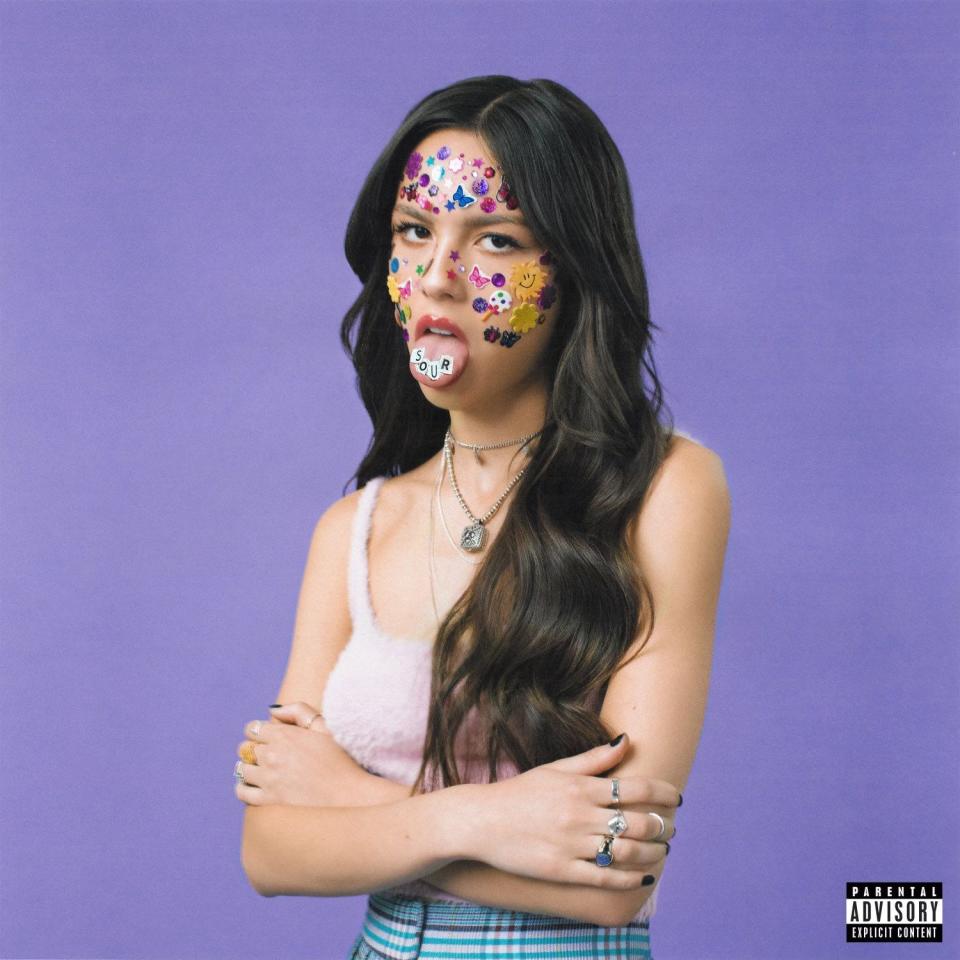
Year: 2022, at the 64th Grammy Awards
What beat it: "We Are" by Jon Batiste
Olivia Rodrigo stunned the world in 2021 with "Drivers License," her first official single that immediately soared to the top of the Billboard Hot 100.
Rodrigo seemed to arrive on the pop battlefield as a predestined star, brandishing lyrics that could make grown adults cry.
Her debut album "Sour" built upon this power with an array of eloquent heartbreak anthems, from pop-rock bangers to tender piano ballads. The collection was met with universal critical acclaim and commercial success, charting at No. 1 on the Billboard 200 for five nonconsecutive weeks.
At the Grammys, however, "Sour" suffered a shocking loss to Jon Batiste's "We Are." Although Batiste was the most-nominated artist of the evening, few expected his album to take home the top prize. It had failed to crack Billboard's top 50 and made a minimal impact on the year's musical legacy.
Thankfully, Rodrigo did walk away with three awards for her celebrated debut: best pop vocal album, best pop vocal performance for "Drivers License," and best new artist.
"Thank U, Next" is a perfect pop album that Ariana Grande managed to create amid trauma and grief.
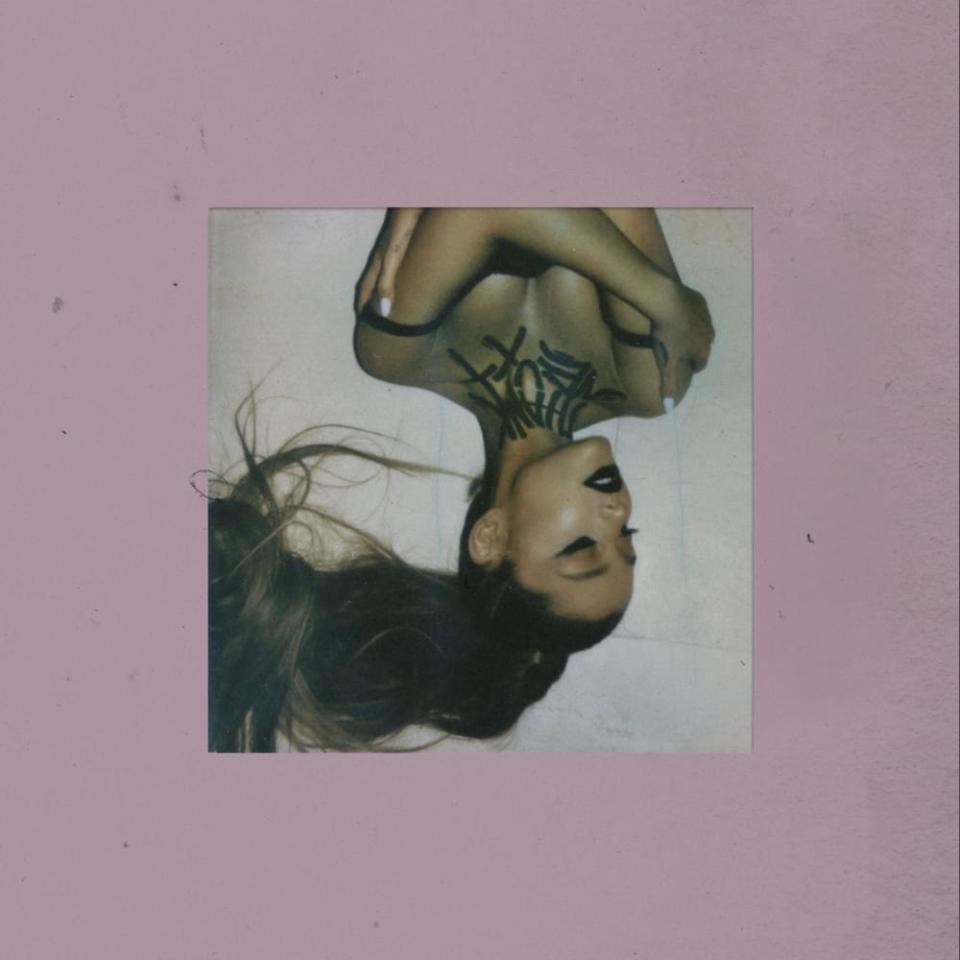
Year: 2020, at the 62nd Grammy Awards
What beat it: "When We All Fall Asleep, Where Do We Go?" by Billie Eilish
Just a couple of months after releasing the best album of her career, "Sweetener," Ariana Grande found herself in the midst of multiple personal crises. Her longtime love and ex-boyfriend, Mac Miller, unexpectedly died of an accidental overdose. Shortly after, she broke off her whirlwind engagement to Pete Davidson.
Grande channeled this feverish period of upheaval and grief into one of the most compelling pop albums in recent memory. "Thank U, Next" is filled to the brim with intimate personal details, irresistible hooks, genre-blending beats, and angelic vocal runs. It was written and recorded in just three weeks.
This isn't to say Billie Eilish's debut album isn't a stunning piece of art, or that she isn't deserving of praise. As a teenager, Eilish already cemented herself as a Grammy darling.
But it is to say that 2020 should've been Grande's year. She has proved herself as a once-in-a-generation pop star, infusing her music with brightness and resilience. "Thank U, Next" marked Grande's arrival as a living icon, while Eilish has plenty of growth ahead of her — and even Eilish herself would agree with this assessment.
"Can I just say that I think Ariana deserves this?" she said during her acceptance speech.
Lorde's "Melodrama" is a rich portrait of heartbreak and young adulthood.
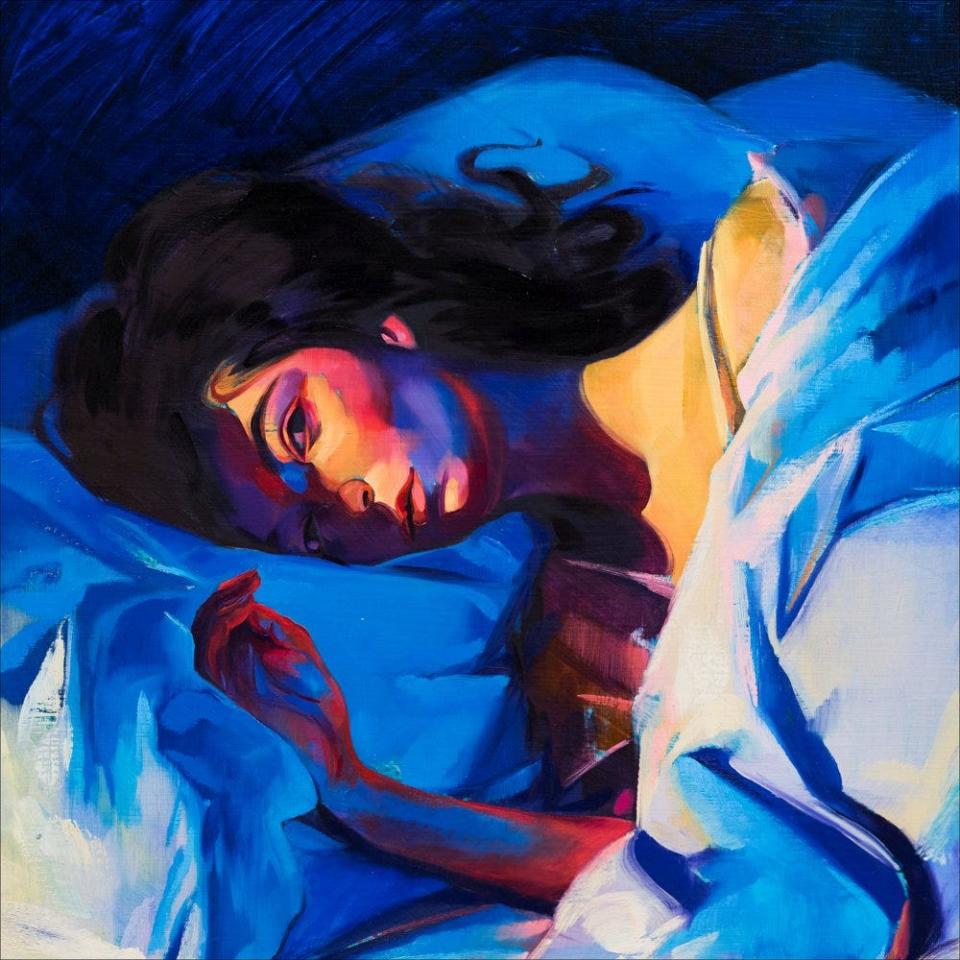
Year: 2018, at the 60th Grammy Awards
What beat it: "24K Magic" by Bruno Mars
The so-called "sophomore slump" is extremely difficult to avoid, especially when you're following a trendsetter like "Pure Heroine." But Lorde returned with "Melodrama," a masterfully vivid portrait of a woman in transition and easily one of the decade's best albums.
But "Melodrama" was viciously undervalued at the 2018 Grammys, netting just one nomination for album of the year.
Lorde was the only female artist nominated for album of the year in 2018 (and the only nominee who wasn't asked to perform solo). She ultimately lost to "24K Magic" by Bruno Mars — a catchy, safe album that doesn't come close to Lorde's precocious grandeur.
Beyoncé's "Lemonade" is the product of an icon at her creative peak.
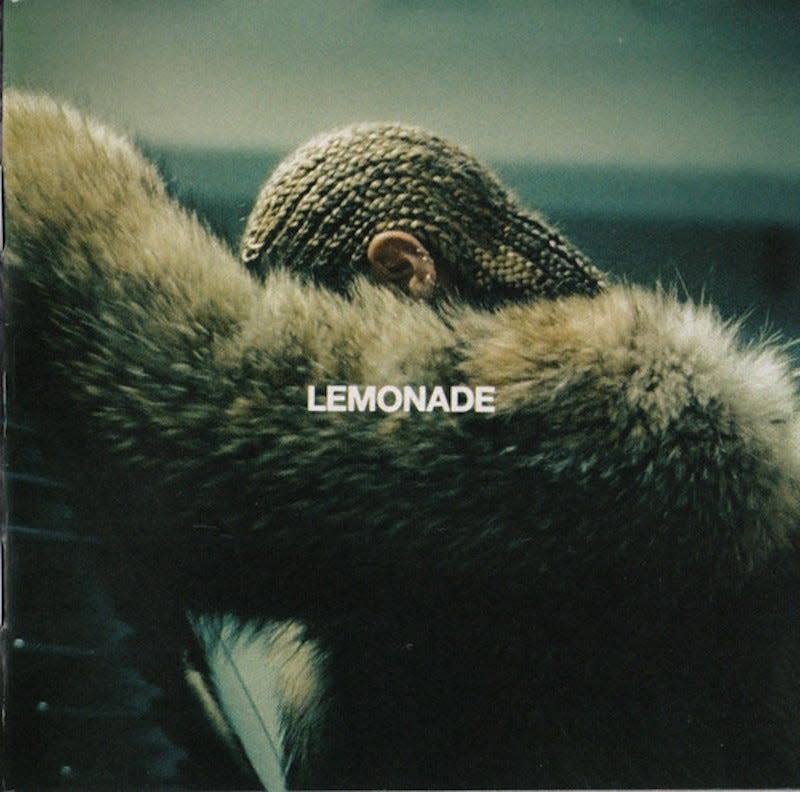
Year: 2017, at the 59th Grammy Awards
What beat it: "25" by Adele
"Lemonade" is a one-of-a-kind album that only Beyoncé could make.
The disrespect she was paid at the 2017 Grammys is one of the great injustices in music history; she also failed to win best pop solo performance for "Hold Up," best rock performance for "Don't Hurt Yourself," best rap/sung performance for "Freedom," and record and song of the year for "Formation."
Even that year's album of the year winner, Adele, said that "Lemonade" should've won. (To make matters worse, it was Beyoncé's third straight loss in that category.)
"I can't possibly accept this award. My artist of my life is Beyoncé. And this album for me, the 'Lemonade' album, was just so monumental," she said onstage. "So well thought-out and so beautiful and soul-bearing and we all got to see another side to you that you don't always let us see, and we appreciate that. And all us artists here, we fucking adore you. You are our light."
Kendrick Lamar's "To Pimp a Butterfly" is one of the best rap albums in history.
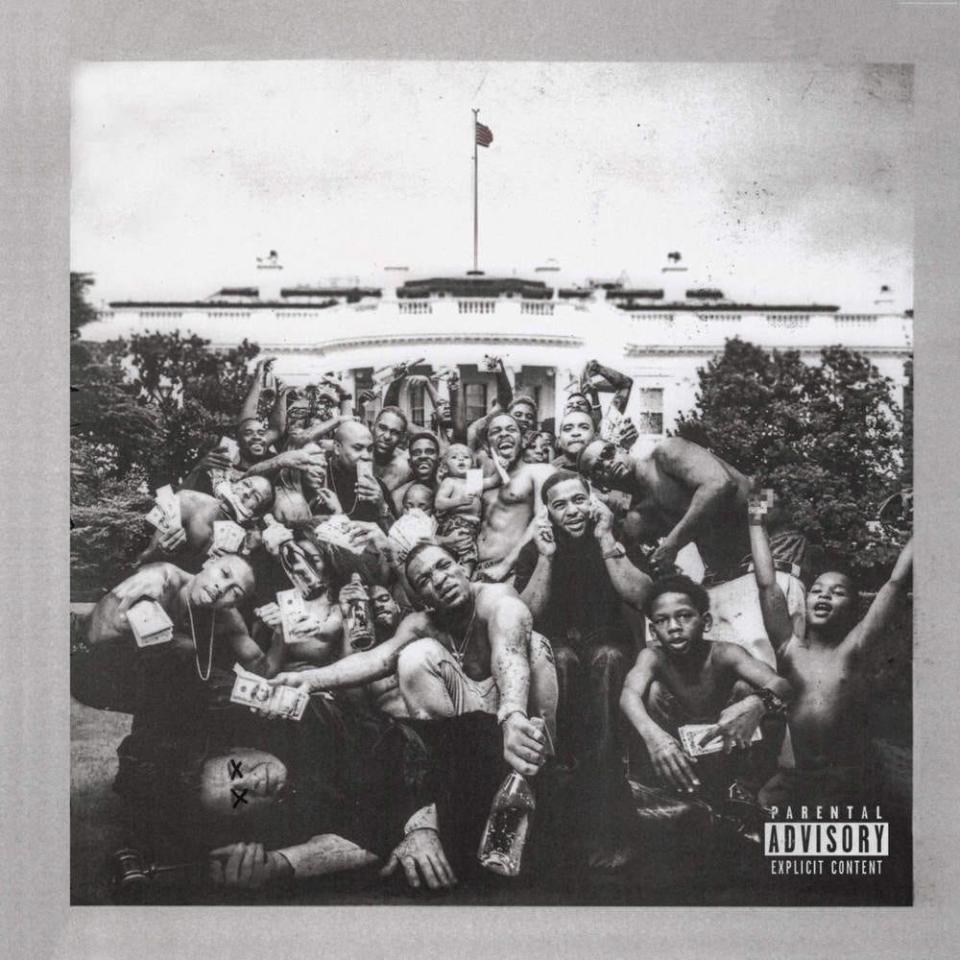
Year: 2016, at the 58th Grammy Awards
What beat it: "1989" by Taylor Swift
Although "1989" is a pop gem, it can't compare to Kendrick Lamar's "To Pimp a Butterfly."
Lamar is widely considered the greatest living rapper, known for impeccable lyricism and prodigious production. But his third studio album also holds an extraordinary amount of cultural significance. As Mark Braboy wrote for Business Insider, it "became the unofficial soundtrack to the Black Lives Matter movement amid a continuing wave of fatal police violence against unarmed black Americans across the country."
To this day, Lamar has yet to win album of the year. Meanwhile, Swift has won more times than anyone else.
Beyoncé's self-titled album changed the fabric of the music industry.
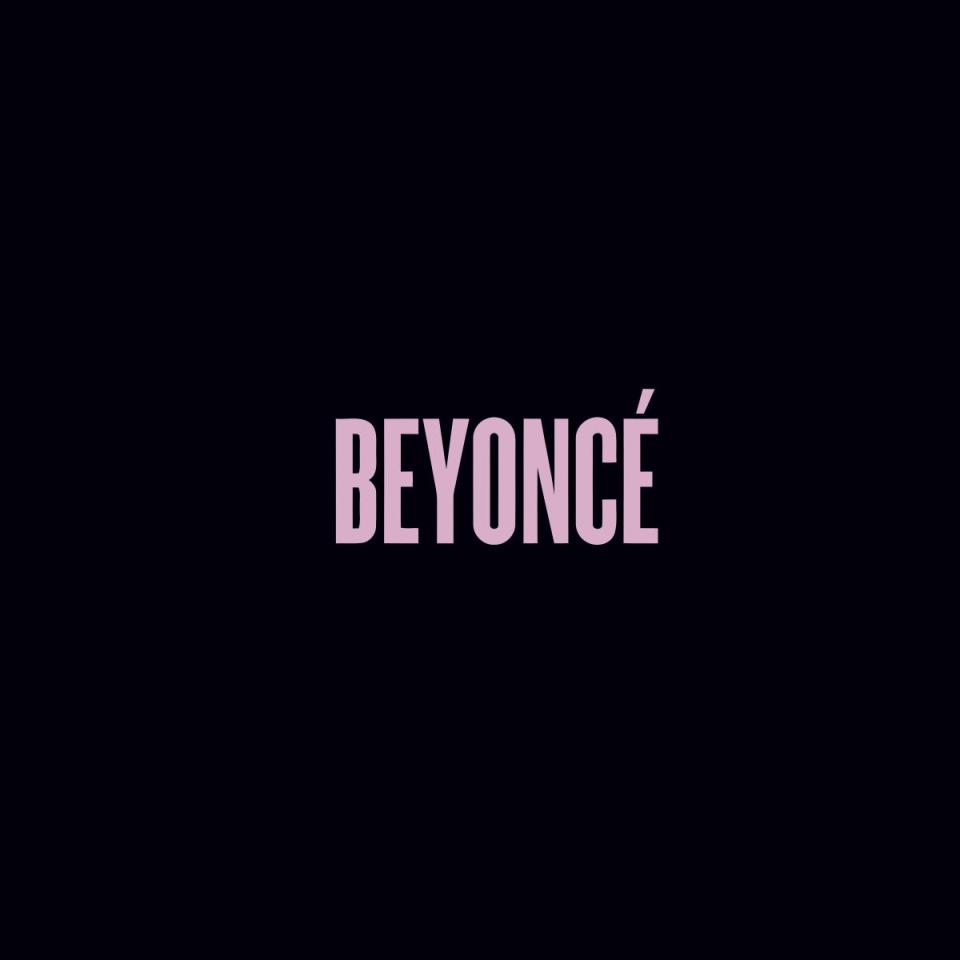
Year: 2015, at the 57th Grammy Awards
What beat it: "Morning Phase" by Beck
When "Beyoncé" unexpectedly arrived on a Thursday night in 2013, it was the definition of game-changing. The concept of a surprise drop or a "visual album" didn't really exist before. Now, everyone wants the magic Beyoncé created that night.
At a time when immersive listening experiences had all but disappeared — streaming had begun to take over, and iPod playlists encouraged fans to bounce from song to song without much thought — Beyoncé offered a collection of 14 songs that were so intentional, so unique, so undeniably flawless that we had no choice but to wrap them around our collective consciousness like a blanket.
Each track on "Beyoncé" was its own moment, but they were inextricably connected, weaving a stronger fabric together. Enter: Beyoncé the storyteller, the big-picture visionary.
And "Morning Phase" is, well, fine.
Beck's win for album of the year read as an overdue apology; the Recording Academy failed to reward his best work from previous decades, like 1996's "Odelay" and 2008's "Modern Guilt." Obviously, it was too late. Giving him the award in 2015, the year of "Beyoncé," was just laughably out of touch.
At the time, "Red" was Taylor Swift's magnum opus.
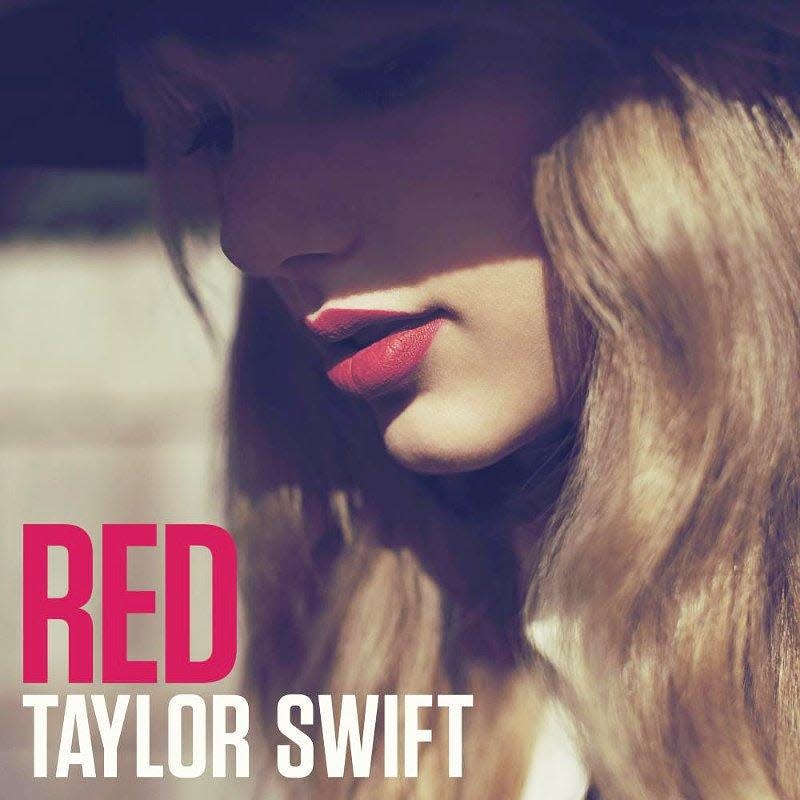
Year: 2014, at the 56th Grammy Awards
What beat it: "Random Access Memories" by Daft Punk
In 2014, Swift was already the youngest album of the year winner in history. But her fourth album, "Red," elevated Swift to a new level of success: it spawned her first-ever No. 1 hit on the Billboard Hot 100 ("We Are Never Ever Getting Back Together") while "All Too Well" was hailed by fans as the best song of her career.
"Red" seemed like a shoo-in for Swift's second big win at the Grammys. Instead, fans and critics were shocked when she lost the award to middling EDM duo Daft Punk.
This misstep has only proved more and more galling as years have passed. In 2019, "Red" topped countless rankings of the decade's best albums, from Stereogum (No. 10) and Billboard (No. 4) to Rolling Stone (No. 4) and, yes, Business Insider (No. 1). "Random Access Memories" failed to crack the top 10 in any of these lists, or it failed to be included at all.
Frank Ocean's debut album "Channel Orange" was an instant classic.
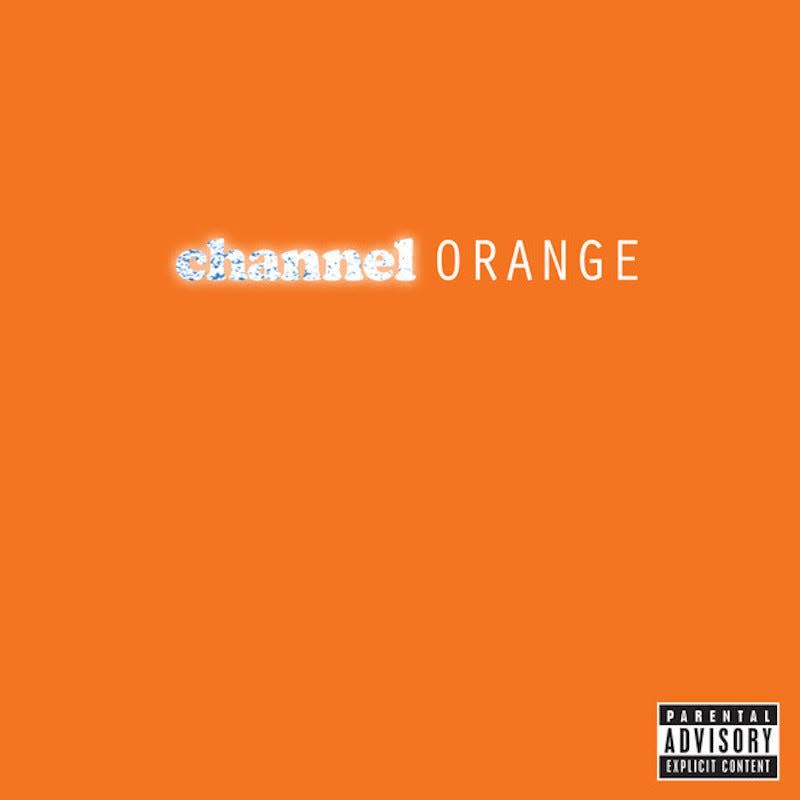
Year: 2013, at the 55th Grammy Awards
What beat it: "Babel" by Mumford & Sons
Frank Ocean didn't produce one of those debut albums that you later recognize, only in retrospect, as the birth of an icon. "Channel Orange" was an instant classic — a tectonic shift in the modern musical landscape. Those young artists that are being hailed these days for "genre-bending," like Billie Eilish and Lil Nas X? Their music wouldn't exist without "Channel Orange."
But the Grammys gave Ocean a consolation prize known as best urban contemporary album (like, what does "urban contemporary" even mean?). "Channel Orange" lost the big award to a much safer, more traditional option: the folk-rock, banjo-heavy sophomore album from Mumford & Sons, which isn't even the band's best work.
"The Fame Monster" secured Lady Gaga's reputation as an avant-pop genius.
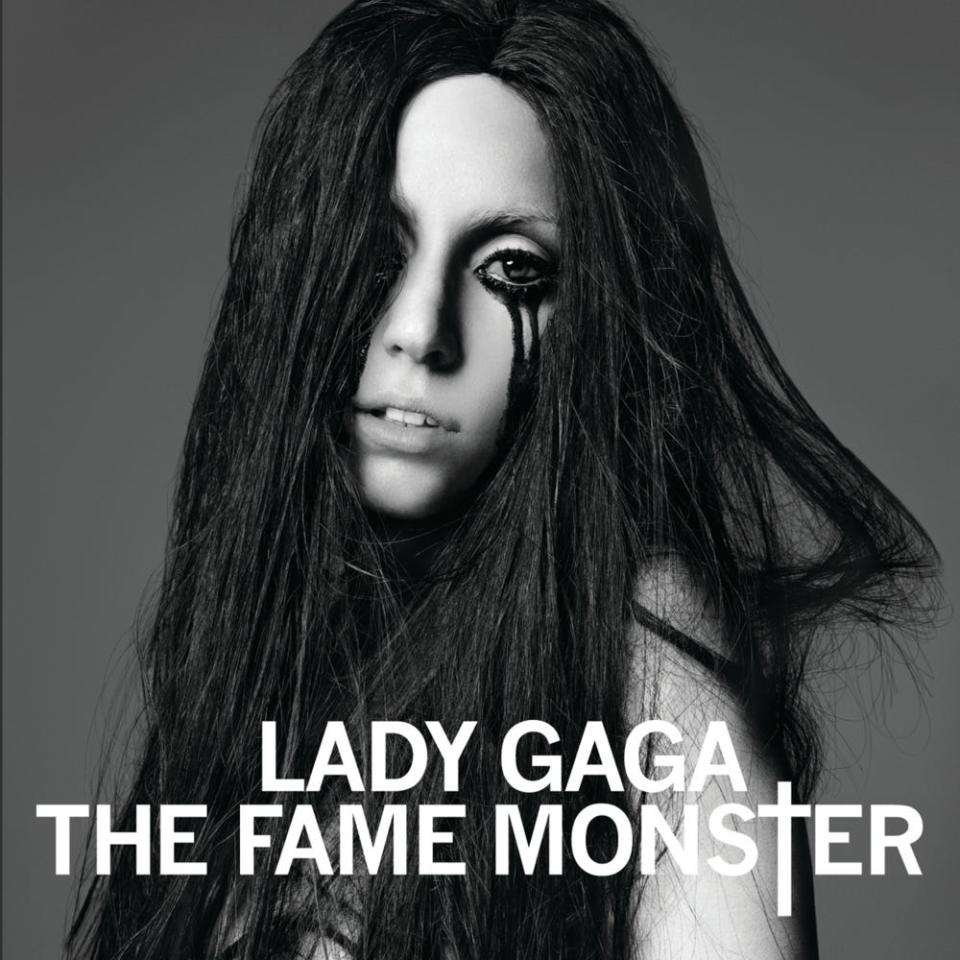
Year: 2011, at the 53rd Grammy Awards
What beat it: "The Suburbs" by Arcade Fire
"The Fame Monster" was such a Moment that Pitchfork ranked it as one of the best albums from the 2010s, despite it being released in 2009.
"For something that cast such a long shadow over this decade, we're making an exception," Amy Phillips wrote. "'The Fame Monster's' release kicked off an arms race of pop kookiness: Suddenly, it seemed like everyone from Katy Perry to Nicki Minaj to Kesha was falling all over themselves to out-weird each other. But nobody's freak flag ever flew higher than Gaga's."
Once again, however, the Recording Academy favored a more obvious choice: Arcade Fire's "The Suburbs," an admittedly excellent album, but far more palatable for a voting bloc that's majority male, white, and older.
"Graduation" took Kanye West's career to new heights.
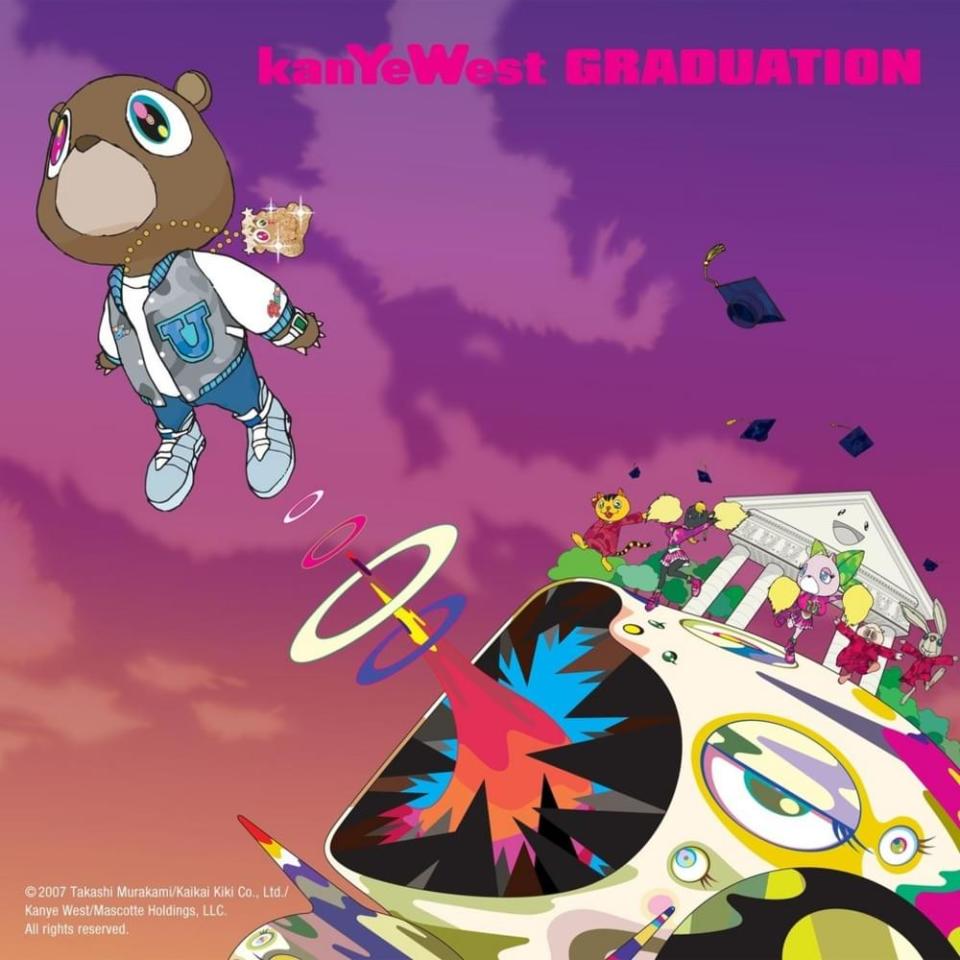
Year: 2008, at the 50th Grammy Awards
What beat it: "River: The Joni Letters" by Herbie Hancock
In 2008, Kanye West had already been nominated for album of the year twice: for "The College Dropout" in 2005 and "Late Registration" in 2006.
But "Graduation" felt like his watershed moment, his career-defining masterpiece (of course, we hadn't yet heard "My Beautiful Dark Twisted Fantasy").
It also seemed like a much easier choice for the Recording Academy to make, even for a group of voters that historically ignores rap and hip-hop. "Graduation" was more commercialized than West's previous works. It was the work of a perfectionist, a sharp student of pop music who craved acclaim, an artist desperate to be recognized as an icon in his own time.
"Graduation" perfectly synthesized the culture in which it was formed, but still had an eye on the future. It had huge stadium bangers, radio hits, sprawling self-examinations, and one particularly poignant self-fulfilling prophecy: "On this day, we become legendary."
And what did this genius piece of work lose to? A... tribute album... of cover songs. OK!
Amy Winehouse won big for her hit song "Rehab," but its parent album "Back to Black" deserved more recognition.
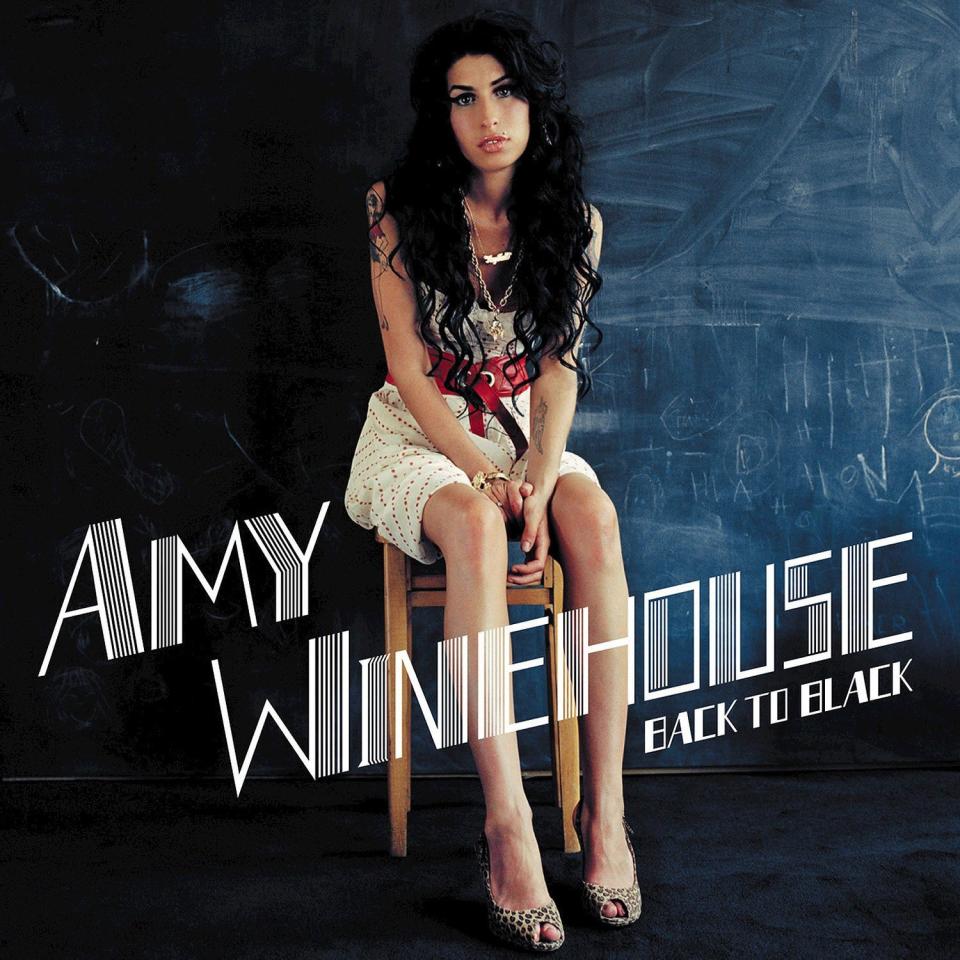
Year: 2008, at the 50th Grammy Awards
What beat it: "River: The Joni Letters" by Herbie Hancock
Grammy voters squandered two chances to get it right in 2008.
"Graduation" was a phenomenal piece of work, but the question of its legacy is divisive for West's fan base. The Mark Ronson-produced "Back to Black," on the other hand, is an undeniable, certified classic — and, in retrospect, Amy Winehouse's last chance to get the recognition she deserved. (She swept the other three main categories that year, and she deserved to sweep all four.)
"The Grammys voting panel could not have known that Herbie would ultimately outlive her and that 'Back to Black' would become her final album," Dee Lockett noted for Vulture. "But they should've known then that while both albums were an homage to the past (Hancock was a Joni Mitchell covers album; Amy's a doo-wop and soul tribute though technically original work), they had different purposes."
"Amy's album proved her a once-in-a-generation talent, but Hancock's only reaffirmed the obvious: He's a legend," Lockett continued. "Except there are quite a few of his albums that do a better job of making that point. Amy would never have another."
Justin Timberlake's "FutureSex/LoveSounds" is the perfect blend of catchy club bangers and experimental art.
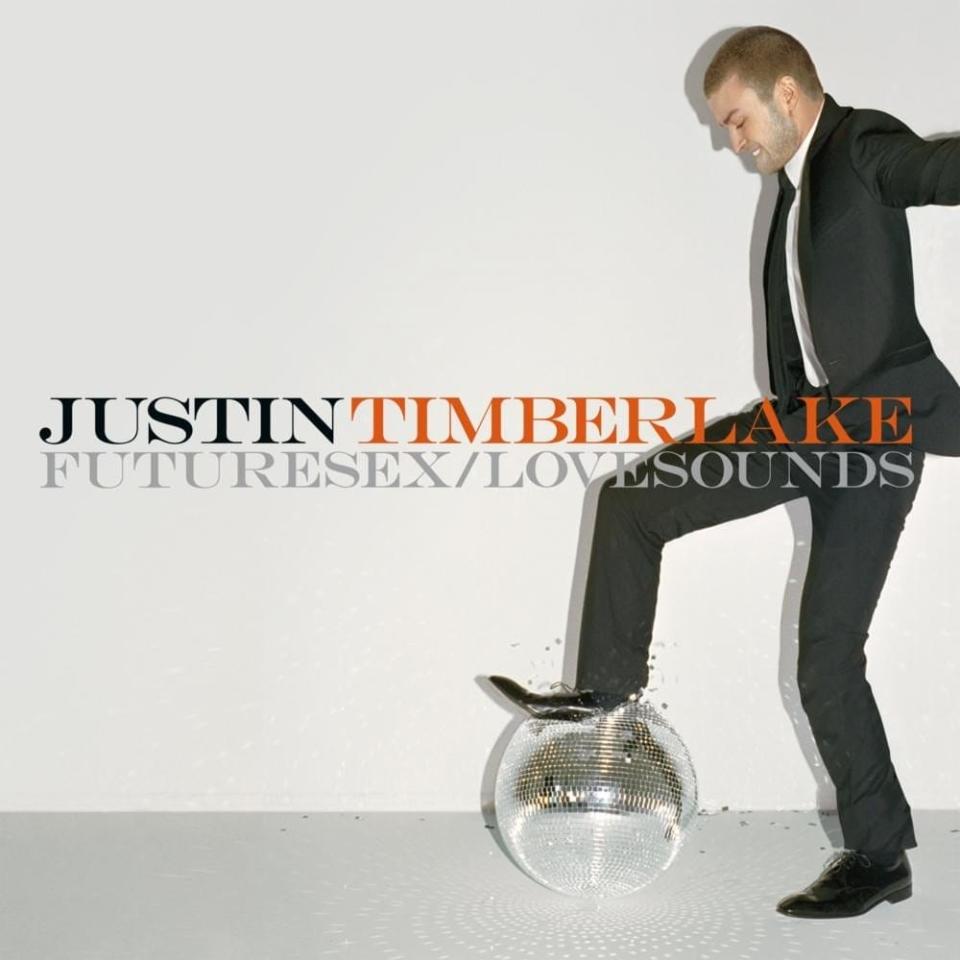
Year: 2007, at the 49th Grammy Awards
What beat it: "Taking the Long Way" by The Chicks
Listen, we love The Chicks. But Timbaland really did his thing with "FutureSex/LoveSounds." Justin Timberlake was already a star, but this album made him a legend.
The current landscape of pop music simply wouldn't exist without Timberlake's seminal body of work. With its indulgent interludes, beatbox bridges, futuristic symphonies, twitchy beats, and sing-song rap verses, "FutureSex/LoveSounds" is super weird — too weird for Grammy voters, especially in 2007 — but it's also weirdly perfect. It was somehow both commercially successful and ahead of its time.
"The Emancipation of Mimi" reasserted Mariah Carey as the ultimate pop diva.
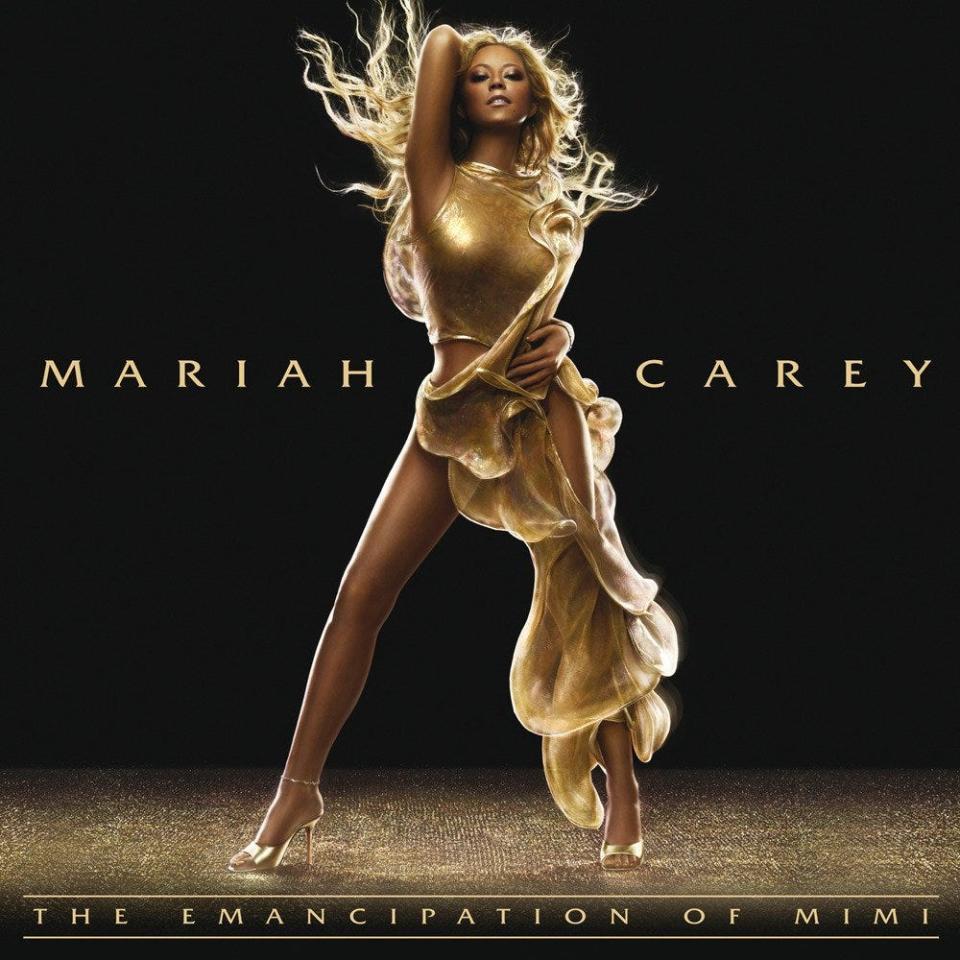
Year: 2006, at the 48th Grammy Awards
What beat it: "How to Dismantle an Atomic Bomb" by U2
"The Emancipation of Mimi" is often cited as Mariah Carey's comeback album, following a decade of pop dominance and then two albums that flopped.
Commercial giants are only welcomed back when the new music is undeniably catchy or downright transcendent. This album was both.
"The Emancipation of Mimi" became Carey's highest-selling release in the US in a decade. The Grammys typically like to reward albums that are relevant (it means all the voters have listened to it, at least). The Grammys also like Carey, who won best new artist back in the day. And yet, voters chose to congratulate U2 yet again.
This wasn't even really a case of two near-equal albums going head to head: "How to Dismantle an Atomic Bomb" was less deserving than multiple nominees, including Kanye West's "Late Registration."
As Zach Schonfeld wrote for Newsweek, "Grammy voters love U2, but this one's a stretch. Though commercially successful thanks to 'Vertigo,' 'Atomic Bomb' was the first U2 album that sounded like just another U2 album."
"Acoustic Soul" by India.Arie is "an album of simple beauty from a singer with a sublime vocal talent."
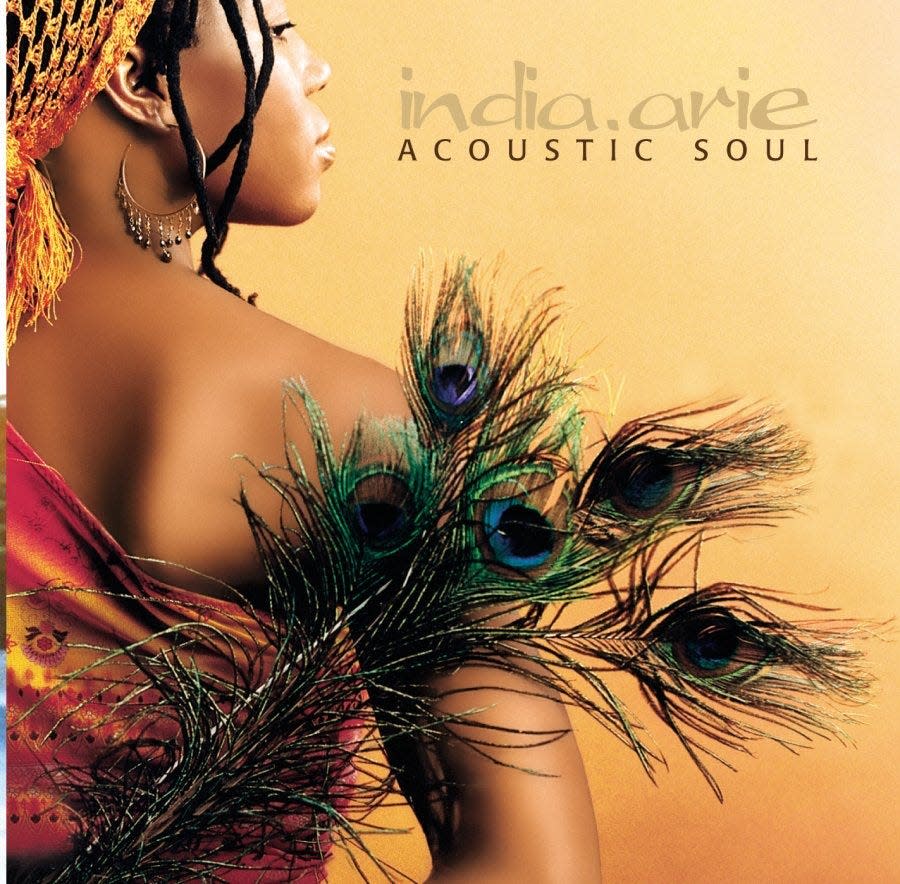
Year: 2002, at the 44th Grammy Awards
What beat it: The soundtrack from "O Brother, Where Art Thou?"
Movie soundtracks are usually considered long-shots for the major Grammy categories, so how did one beat the debut album from one of this century's most talented vocalists?
As BBC's David O'Donnell noted, "Acoustic Soul" by India.Arie received seven nominations but received zero awards, despite how it "broke the mold for female R&B singers at the time."
"It's a piece that blurs the boundaries of the genre and as a result found a diverse audience base from hip-hop to folk fans," O'Donnell wrote. "It's an album of simple beauty from a singer with a sublime vocal talent."
Radiohead's "Kid A" is widely considered one of the best — if not the best — album of the 2000s.
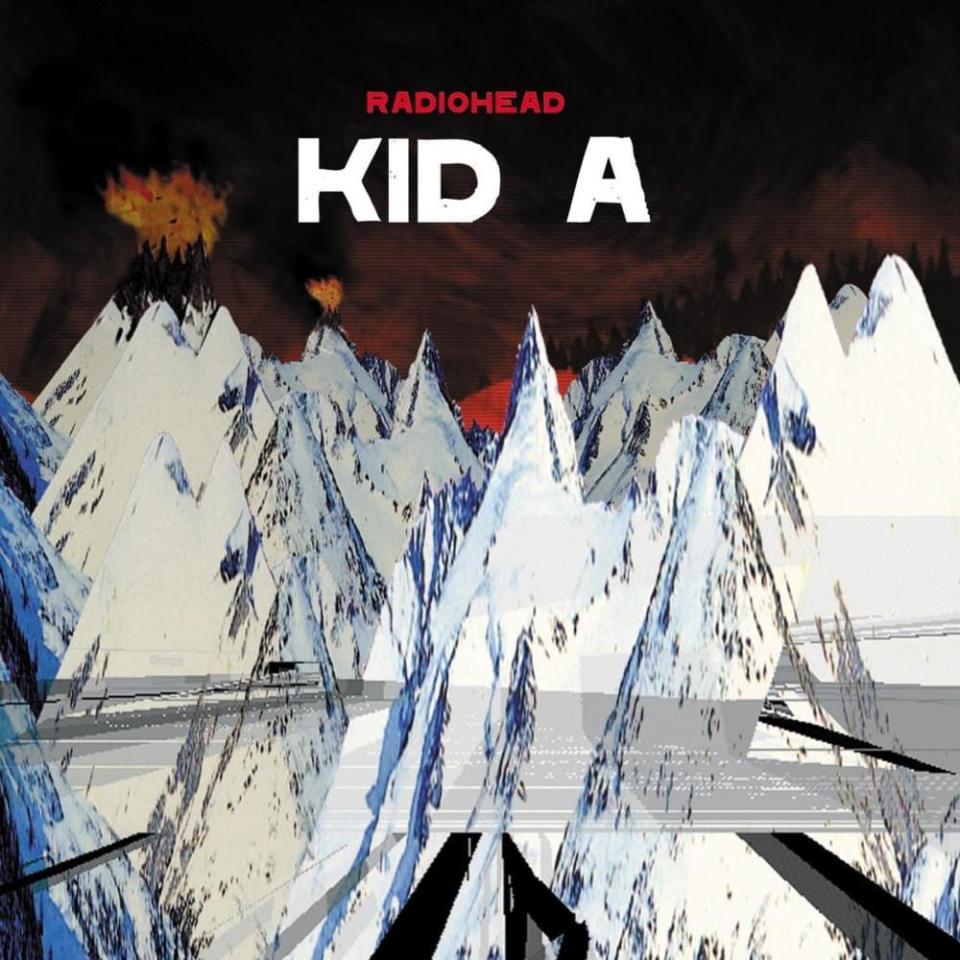
Year: 2001, at the 43rd Grammy Awards
What beat it: "Two Against Nature" by Steely Dan
"Kid A" is one of the most innovative alt-rock albums and profound musical statements in recent memory. Both Rolling Stone and Pitchfork named "Kid A" the No. 1 best album of the 2000s. The Guardian ranked it at No. 2, describing it as "the sound of today, a decade early." (That was in 2009, but it's still an apt description if it were "two decades early.")
By contrast, "Two Against Nature" was thoroughly average. But since it was Steely Dan's first album in 20 years, I guess the voters got overly excited.
Radiohead's "OK Computer" is one of the greatest albums of all time.
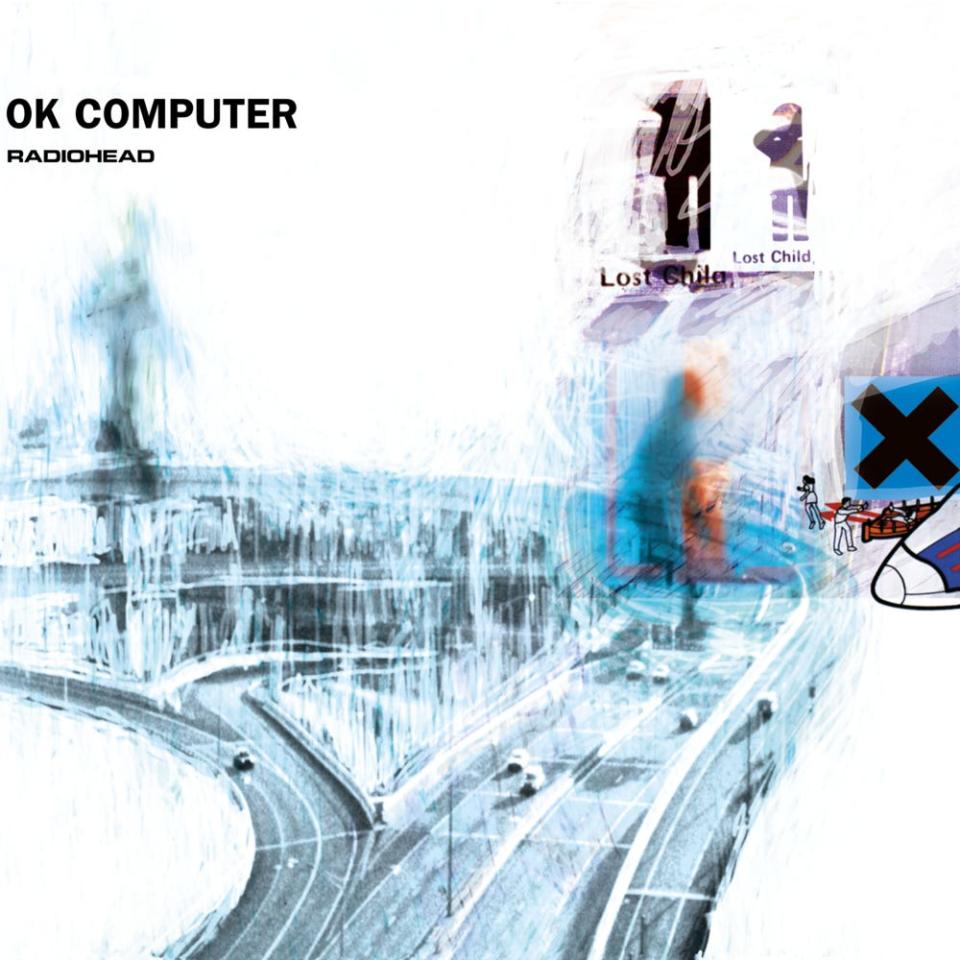
Year: 1998, at the 40th Grammy Awards
What beat it: "Time Out of Mind" by Bob Dylan
Radiohead's "OK Computer" was so perceptive it feels prophetic. It was less of an album and more of a crystal ball, peering into our technology-driven future (now present) and empathizing with our emotions before we had even felt them.
"Radiohead appeared to be ahead of the curve, forecasting the paranoia, media-driven insanity, and omnipresent sense of impending doom that's subsequently come to characterize everyday life in the 21st century," Steven Hyden wrote for the AV Club. "Lofty thematic chit-chat aside, 'OK Computer' delivered the goods for a monumental rock record: It sounded miles-deep and ocean-wide, it blew out your brain and re-invigorated your ears, and made lying on your bed with headphones on seem like a profound activity."
"Time Out of Mind" may have been Bob Dylan's best album to date, but it feels downright forgettable compared to "OK Computer" — an album that is literally preserved in the Library of Congress for having significant cultural, historical, or aesthetic impact on society.
"Odelay" by Beck is an oddball rock masterpiece.
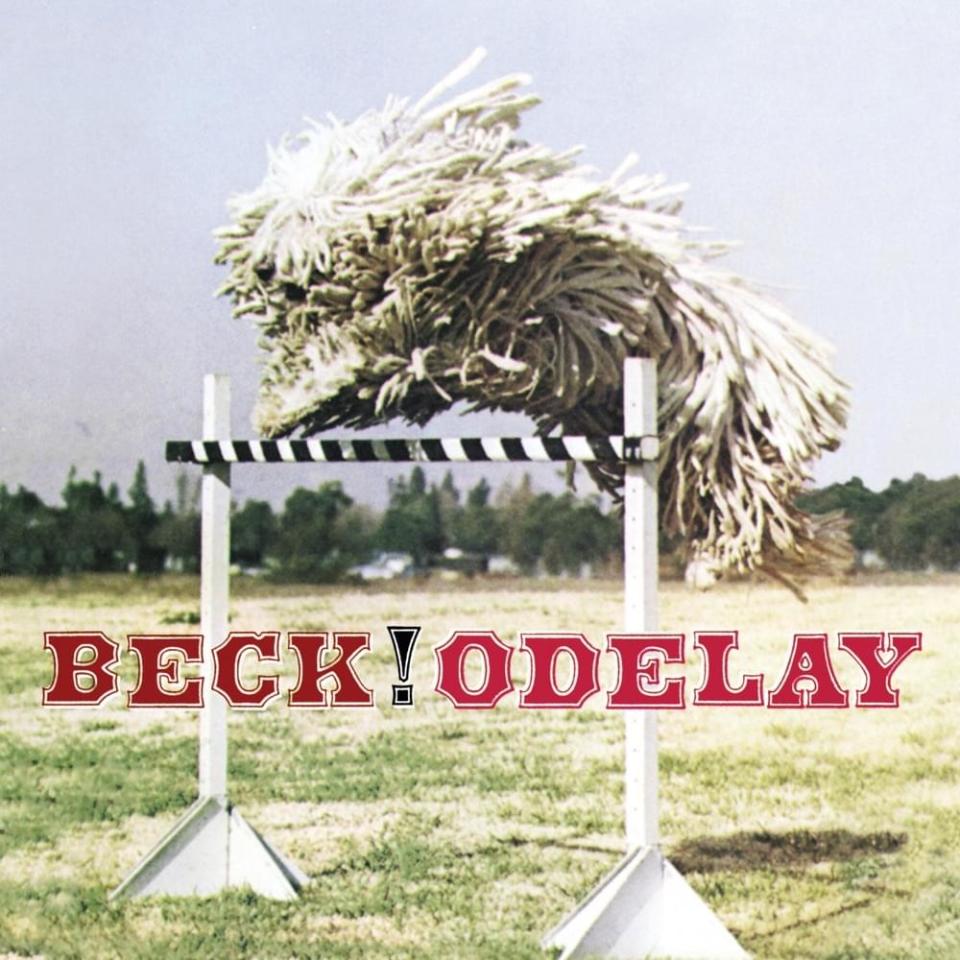
Year: 1997, at the 39th Grammy Awards
What beat it: "Falling Into You" by Céline Dion
Céline Dion is a force, but in retrospect, her massively popular album "Falling Into You" is formulaic at best.
It had little lasting impact on the landscape of music and pales in comparison to its album of the year competitors, including the Fugees' "The Score," the Smashing Pumpkins' "Mellon Collie and the Infinite Sadness," and especially Beck's best album "Odelay," which still sounds fresh and innovative to this day.
Was "Odelay's" egregious snub the reason Beck has gone on to win Grammy Awards for inferior projects? We can only speculate.
"Sign o' the Times" is the most outstanding example of Prince's artistry.
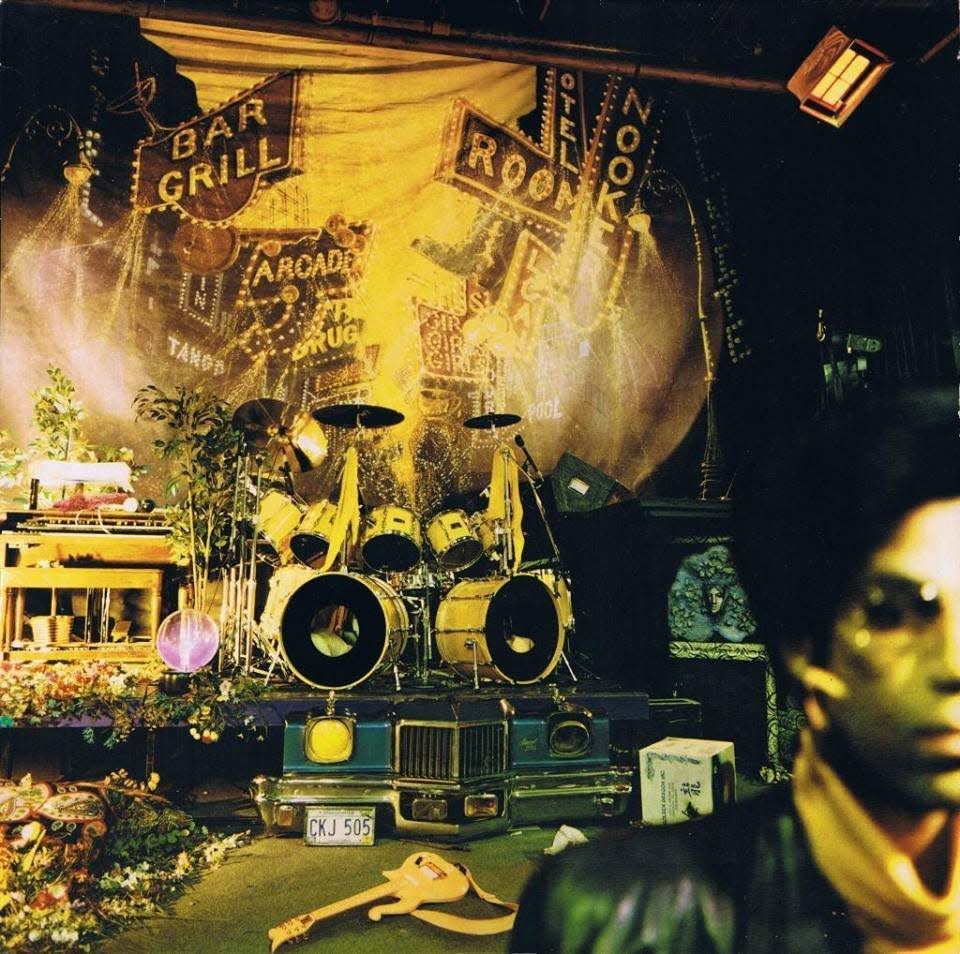
Year: 1988, at the 30th Grammy Awards
What beat it: "The Joshua Tree" by U2
"The Joshua Tree" is probably U2's best album, but I think we can all agree that Prince's best album trumps pretty much any other musician's best album almost every time, including U2.
"Purple Rain" might be Prince's best-known work, but "Sign o' the Times" is his magnum opus. It was even inducted into the Grammy Hall of Fame, nearly 30 years after it was disrespected by that same organization.
It's hard to believe that "Purple Rain," Prince's most beloved album, could lose any award ever.
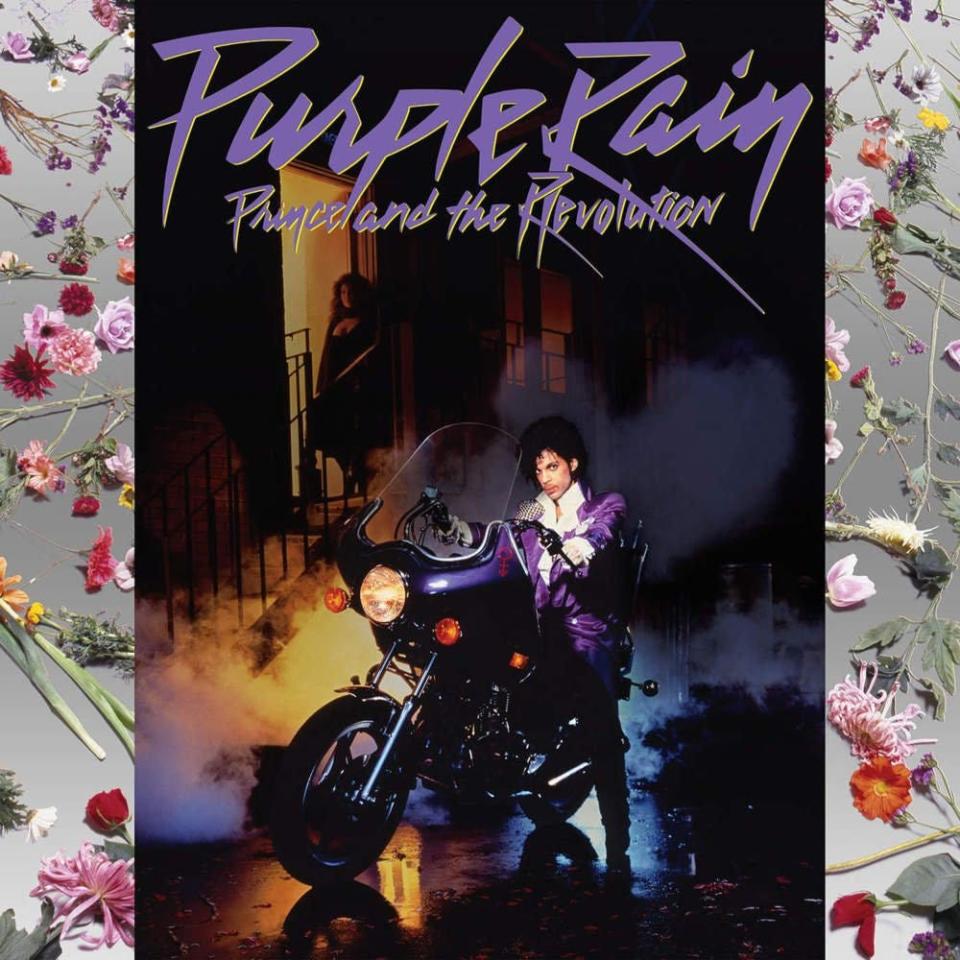
Year: 1985, at the 27th Grammy Awards
What beat it: "Can't Slow Down" by Lionel Richie
No disrespect to Lionel Richie, but this is "Purple Rain" we're talking about. I rest my case.
Pink Floyd's "The Wall" is the most famous concept album of all time.
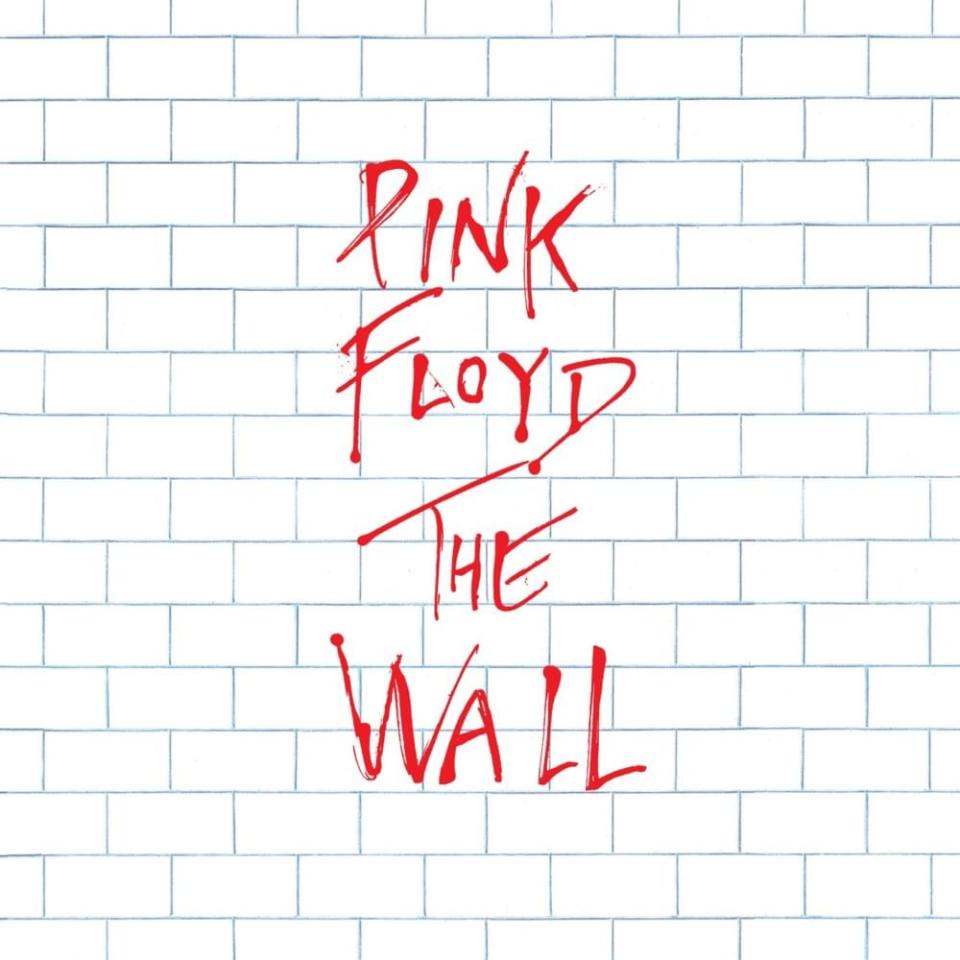
Year: 1981, at the 23rd Grammy Awards
What beat it: "Christopher Cross" by Christopher Cross
Not only is "The Wall" a seminal body of work, a self-evident standard that artists still strive to and fail to reach, but it lost to "Christopher Cross." Oh, you don't know who Christopher Cross is? That's OK, neither does anyone else.
If any one ceremony could encapsulate why the Recording Academy can't be trusted, it's this one. Cross became the only artist in Grammys history to win all four major awards in the same night — album of the year, record of the year, song of the year, and best new artist — and remained the only artist to do so for nearly four decades, until Billie Eilish joined the ranks in 2020. He never won another.
"Abbey Road" is the most iconic album from the most iconic band in history.
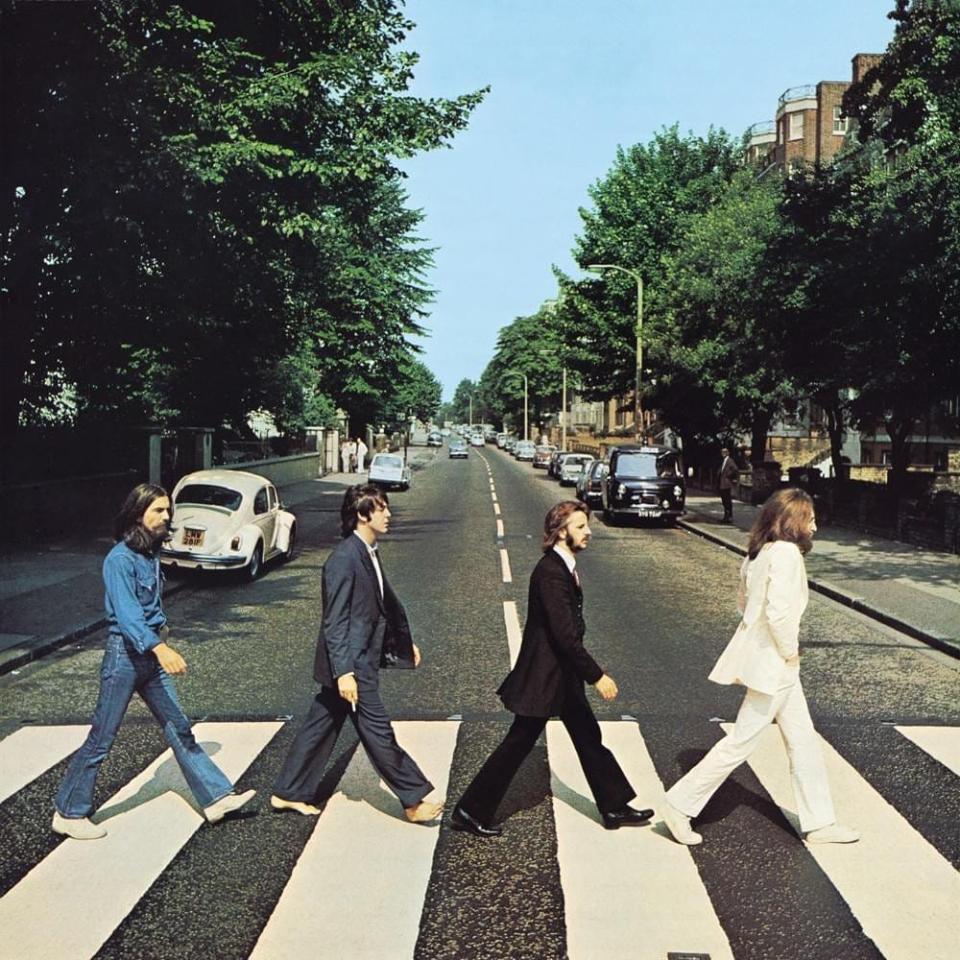
Year: 1970, at the 12th Grammy Awards
What beat it: "Blood, Sweat & Tears" by Blood, Sweat & Tears
"Blood, Sweat & Tears" is a wonderful jazz-rock album, but that hardly matters when "Abbey Road" is in the running — and, mind-bogglingly, the award wasn't even given to the next-best choice.
As Craig Jenkins wrote for Vulture, "The Recording Academy had one job in 1970, and that was to slide the album of the year trophy to one of the three masterworks of the late '60s."
"'Blood, Sweat & Tears' is great, but 'At San Quentin'? 'Crosby, Stills & Nash'? 'Abbey Road'!? These are epochal records within their respective forms. 'Blood, Sweat & Tears' isn't even the tightest mainstream jazz-fusion album from the same eligibility period. (What's up, 'Chicago Transit Authority'?) Swing and a miss."
For critics and Beatles fans alike, "Revolver" is second only to "Sgt. Pepper" as the band's greatest work.
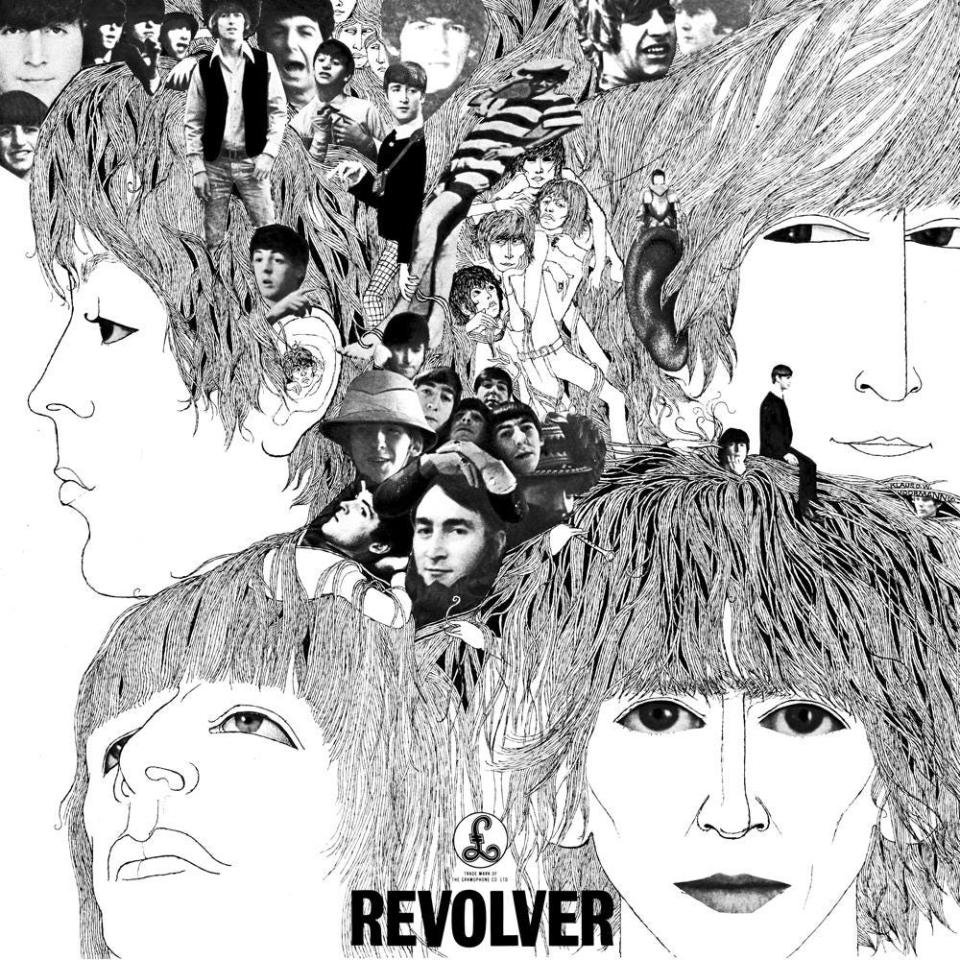
Year: 1967, at the 9th Grammy Awards
What beat it: "A Man and His Music" by Frank Sinatra
Thankfully, "Sgt. Pepper's Lonely Hearts Club Band" did win album of the year in 1968. But the band's second-greatest work failed to get the same recognition the previous year.
To make it even worse, "Revolver" was only nominated in that singular category, so despite creating an album full of classics — from "Eleanor Rigby" and "Yellow Submarine" to "Got to Get You into My Life" — the band came up completely empty-handed.
Read the original article on Business Insider


